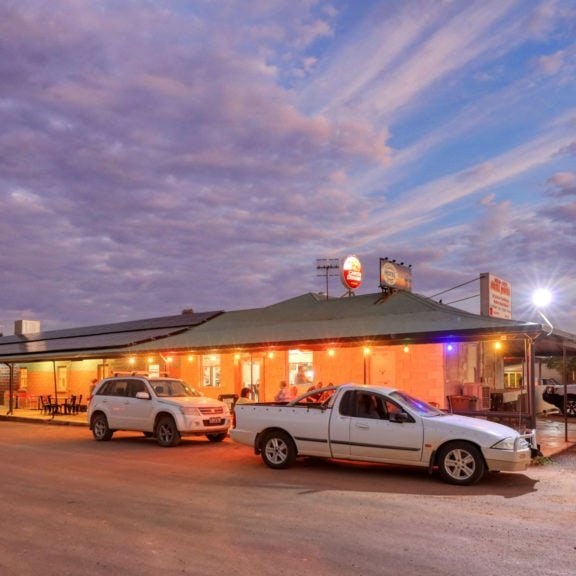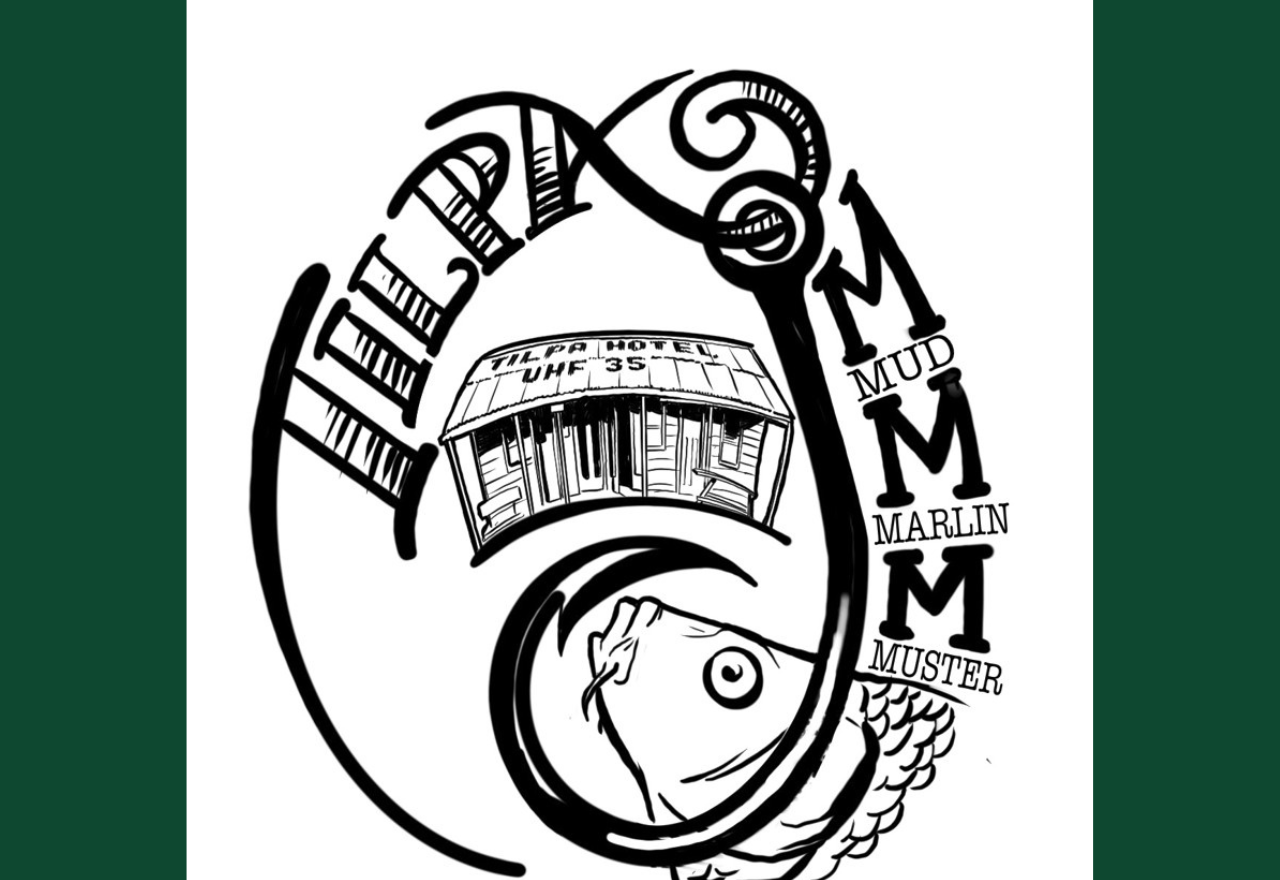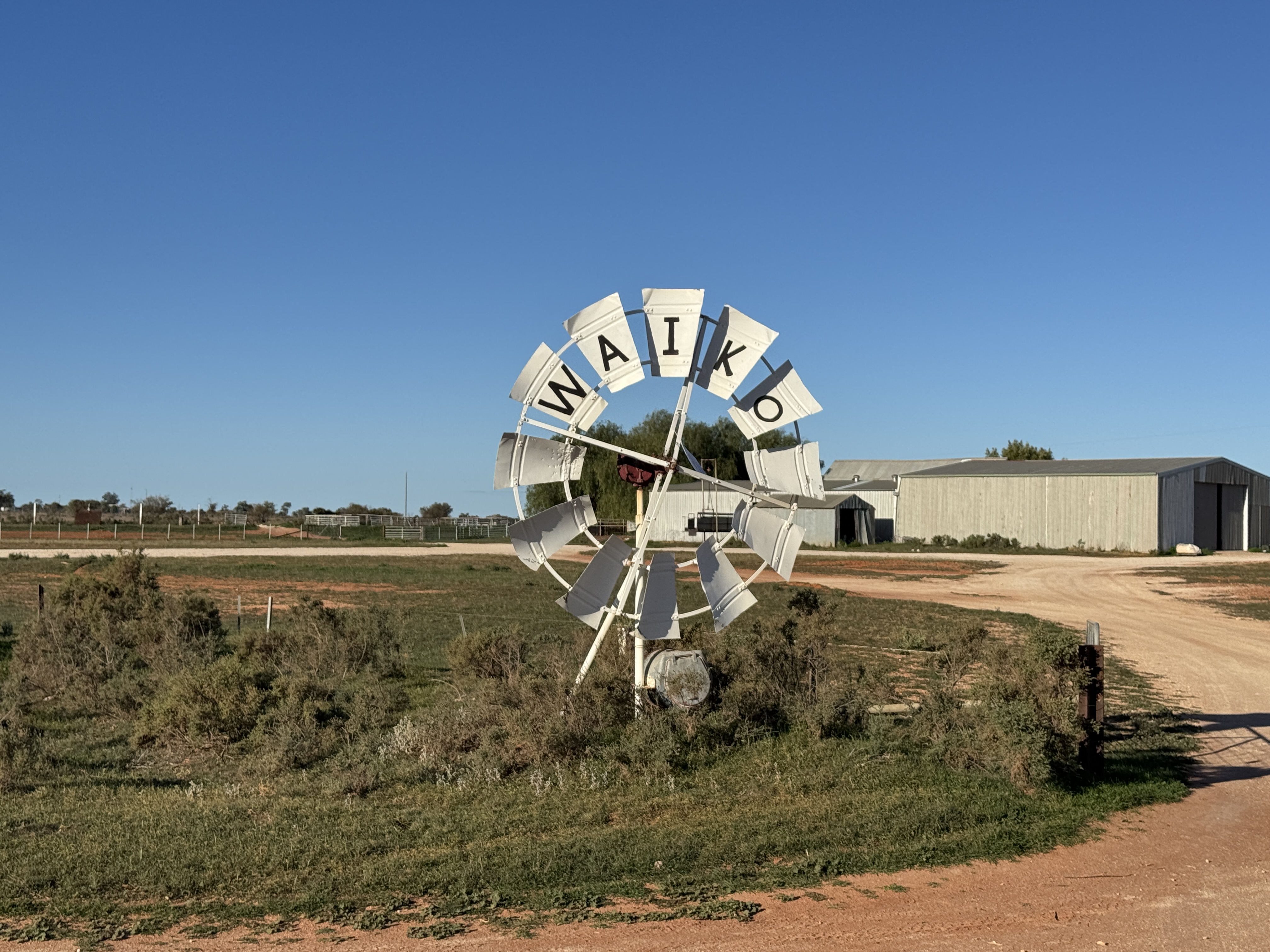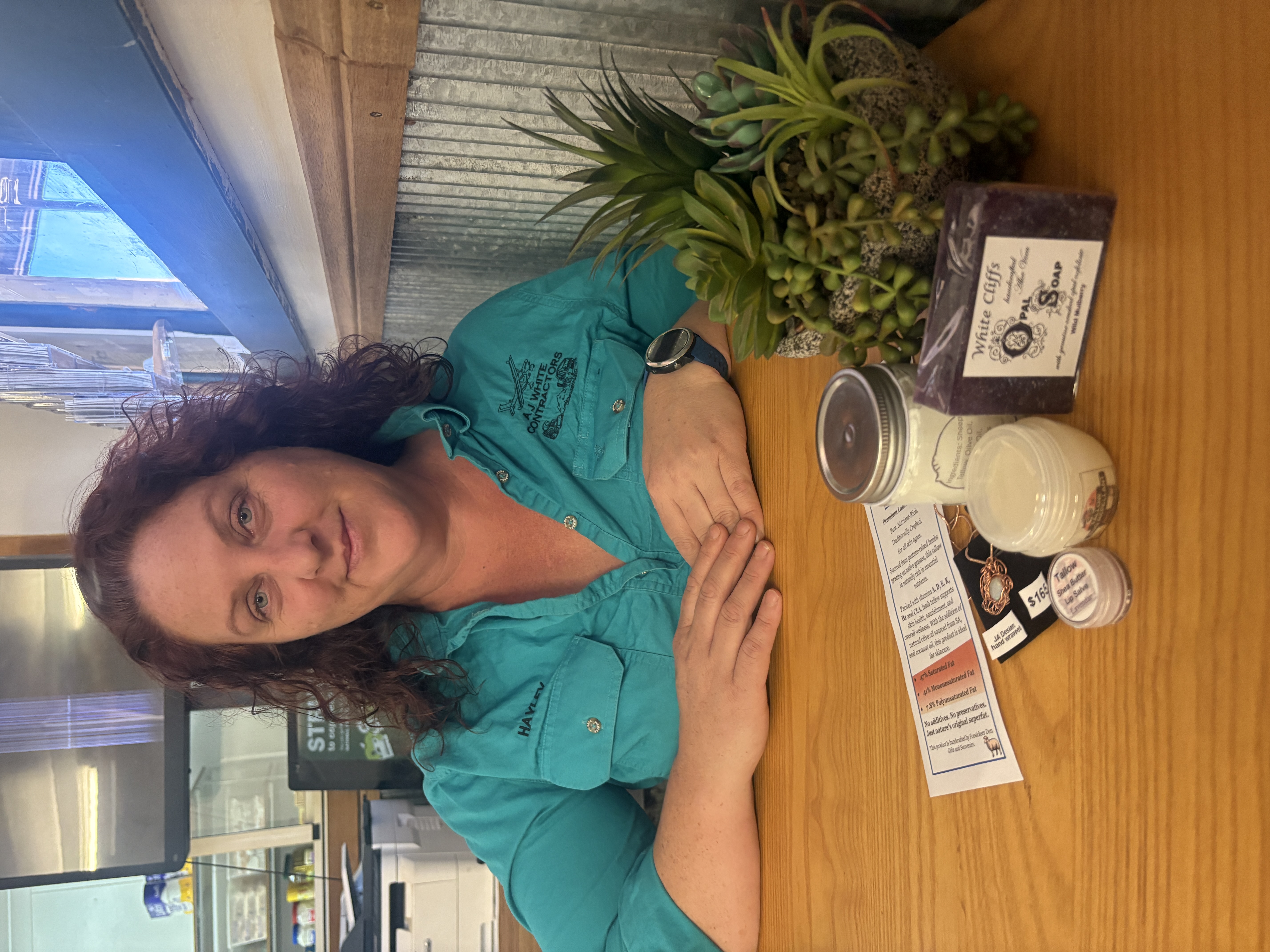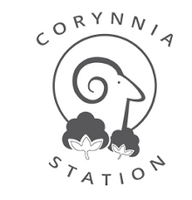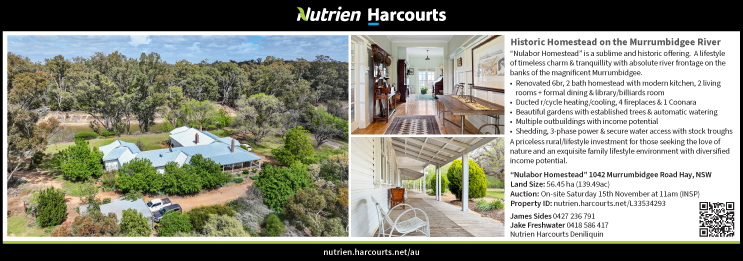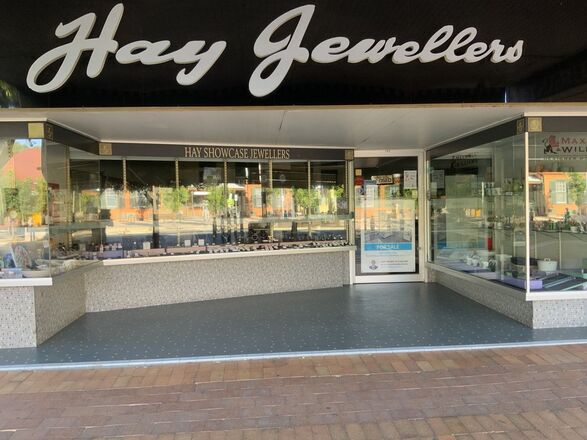From tobacco fields to red earth: Jacqui Portch's journey to peace
Kimberly Grabham
25 October 2025, 4:00 AM
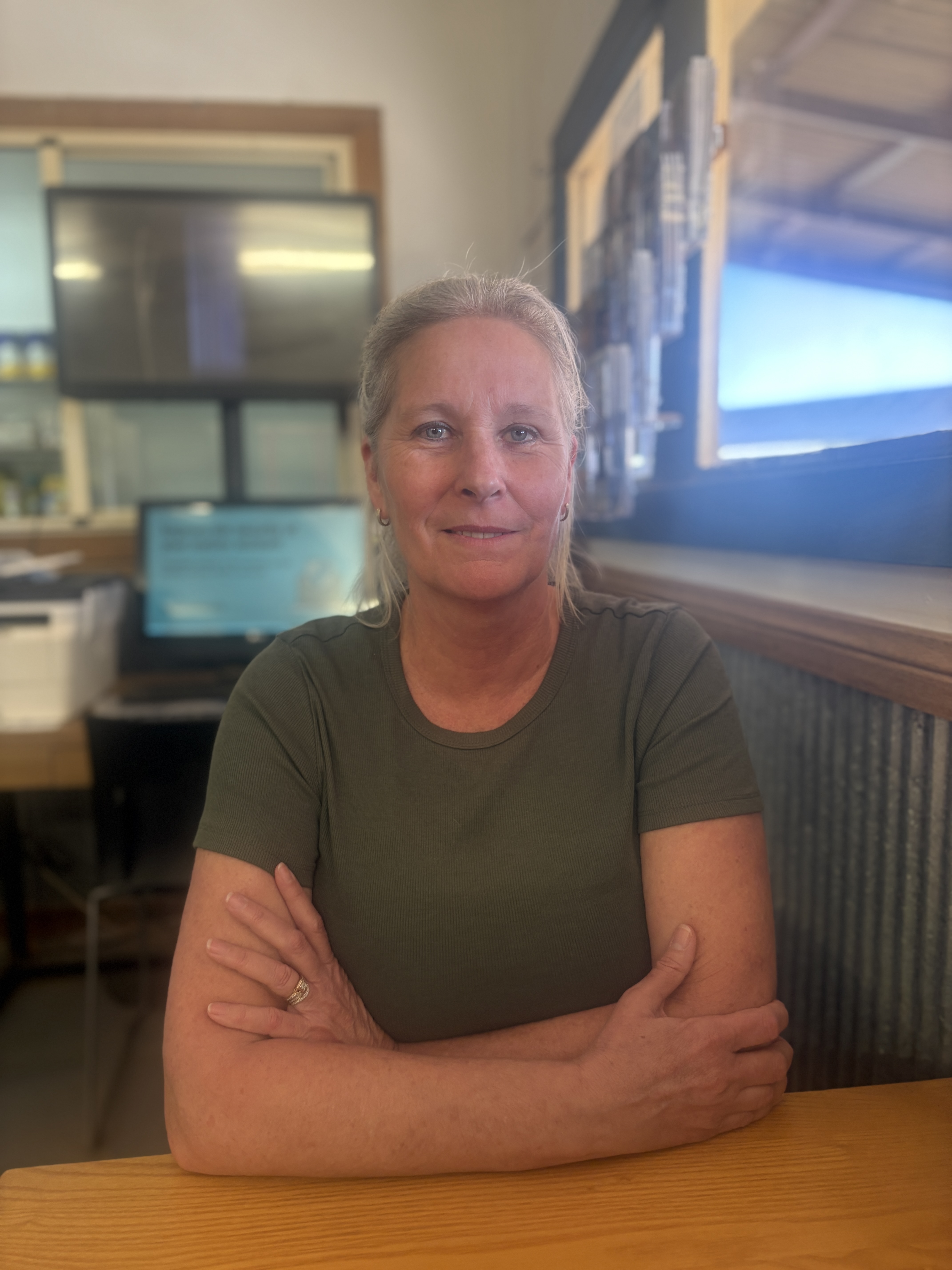
The woman behind the counter at White Cliffs' only shop moves with quiet efficiency, her smile genuine as she serves customers who've become friends.
At 53, Jacqui Portch radiates a contentment that comes from having weathered life's worst storms and emerged not just intact, but flourishing.
Her journey to this remote corner of New South Wales is an epic tale; one that spans continents, languages, and lives lived and lost.
Jacqui's story begins in the tobacco fields of Rhodesia, where her father's farm stretched across rich red earth just outside Salisbury.
The 1970s childhood was idyllic in the way that only hindsight can make clear; endless African skies, wildlife roaming freely, and the security of a life that seemed permanent and protected.
"It was a very beautiful country," Jacqui recalled, her slight accent still carrying traces of her African origins.
The family grew tobacco, maize, and soy beans, keeping a few cattle for fresh milk.
Like most farming families of their background, they employed domestic staff, maids who cooked and cleaned, garden workers who maintained the grounds.
It was simply the way life was structured then, a system that seemed as natural and permanent as the seasons.
But even paradise had its shadows.
At just eight and nine years old, Jacqui and her sister were sent away to boarding school in Cape Town; little girls spending weeks away from home, returning only for brief holidays.
The education was excellent, but the cost of separation was high for children so young.
"It was tough," she admits. "Very tough, especially being only eight."
The family's comfortable world began to unravel during Jacqui's teenage years.
War veterans arrived at their farm one day with a message that would change everything: "You've got two weeks to get off."
There was no discussion, no negotiation, no compensation.
The land that had sustained their family for generations was simply taken.
"They just walk onto a property and tell you," Jacqui explained, her voice matter-of-fact.
"No conversation whatsoever."
Like thousands of white farming families, Jacqui and her family had no choice but to abandon everything they'd built.
Her parents moved to a small town called Chinhoyi, their agricultural dreams reduced to memories.
The stress and upheaval took a devastating toll; Jacqui's beloved mother died in 2003 at just 54 years old, falling down stairs at home and passing away overnight in hospital.
"She was the most beautiful, lovely woman I've ever known in all my life," Jacqui said.
"That was the hardest thing I've ever had in my whole life."
Life in the final years of Zimbabwe became increasingly dangerous and desperate.
Homes were fortified with high walls topped with broken glass bottles.
Guns were kept under car seats as a matter of survival.
Break-ins were constant, fear was a daily companion, and the economy collapsed around them.
Basic necessities became luxuries.
There was one type of milk, one type of bread; bright yellow from being made with mealie meal and rock-hard by morning.
Queues for fuel stretched for blocks, with families sending workers to sleep in cars overnight just to maintain their place in line.
When Jacqui gave birth to her first son Matthew thirty years ago, her house had no running water for two weeks.
"We used to line up for fuel. There was no fuel in the country," she remembers.
"We used to have to put one of the garden boys in the car to sleep there the night just to get fuel."
By 2002, with $3,000 US dollars rolled up and hidden in toothpaste tubes throughout her luggage (possessing American currency was illegal in Zimbabwe), Jacqui boarded a plane for Australia.
She carried three suitcases and enormous hope, leaving behind not just a country but an entire way of life.
One suitcase went missing, ending up in Hong Kong, but she'd made it to Perth with her life and her children's future ahead of her.
The culture shock was immediate and overwhelming.
Supermarkets with entire aisles dedicated to different types of milk left her paralysed with choice; it took her a year to work out which was normal cheese, another year to find regular potato chips among the bewildering array of options.
"I used to listen to the radio and everybody's whinging about potholes," she laughed.
"I used to go, 'Dude, you need to go and live in Africa.'" Despite her qualifications and extensive experience in administration and project management, finding work proved unexpectedly difficult.
Australian employers found her over-qualified for specific roles. She started as a telemarketer, hardly the career path she'd envisioned, but gradually worked her way up to project manager over the years.
Life had one more surprise waiting.
Through work connections and the intricate networks that bind small communities together, Jacqui met Stephen Portch.
A man with four trades behind him; electrician, instrument technician, gas fitter, and plumber, Stephen could fix anything, solve any problem, and most importantly, saw in Jacqui not a damaged refugee from a troubled country, but a remarkable woman deserving of love and respect.
"He's my soulmate," she said simply. "He's my everything."
Stephen brought her into the warm embrace of his mining family in White Cliffs; people who didn't see her as foreign or different, but as Jacqui, Stephen's partner, a woman with stories to tell and skills to contribute.
For someone who'd lost so much of her own family, being accepted so completely felt like a miracle.
Three and a half years ago, Jacqui and Stephen made the decision to leave the increasingly crowded Queensland coast for White Cliffs.
What started as Stephen helping his family with their mining operation became a complete lifestyle transformation.
Jacqui found herself behind the grill at the local shop, flipping burgers, something she'd never done in her life.
"I was thrown in the deep end," she recalled.
"Jacqui, there's the grill. Here's all your cold stuff, and this is how you do it."
Those first weeks were stressful; learning to be on her feet all day, her body aching from the unfamiliar work.
Each night she'd soak her feet in vinegar and warm water, wondering what she'd gotten herself into.
But gradually, something unexpected happened: she found peace.
Working in the shop meant knowing everyone in town, being part of the postal agency, becoming the person people turned to for help and conversation.
The woman who'd once managed million-dollar projects now found deep satisfaction in the simple rhythms of small-town life.
The contrast with her previous lives couldn't be starker.
In Africa, she'd grown up with servants and staff, never needing to cook or clean.
In Australia's cities, she'd been surrounded by endless consumer choices and the constant pressure to accumulate more possessions.
In White Cliffs, she discovered the profound liberation of living simply.
Their belongings fit into one bedroom of a caravan. When they travel to Broken Hill for supplies, they buy necessities, not luxuries.
Their treats are chocolate and Stephen's beloved salt-and-vinegar chips.
Before any purchase, Jacqui finds herself asking, "Do I actually need this?" Usually, the answer is no.
"It's a simplified life," she explained. "You double-think everything. I don't miss having big shops or big Woolworths or anything. You pair it all back, and you've got what's really important."
The peace she's found runs deeper than material simplicity.
There's no fear here, no need for walls topped with glass, no guns under car seats, no constant vigilance.
The silence of the outback, which once seemed empty to city-dwellers, now feels like a blessing.
The community that's embraced them represents something unique in modern Australia.
Retired professionals, Vietnam veterans, former police officers, teachers, all people who've found their own version of peace in this remote corner of the continent.
When Stephen's expertise is needed, he's there.
When Jacqui's warmth and intelligence are required, she provides it.
It's a place where being in your fifties doesn't mean being sidelined, but rather being valued for accumulated wisdom and skills.
Where mistakes are forgiven, eccentricities are celebrated, and everyone looks after everyone else.
"We've got a really good life," Jacqui reflected.
"We travel a lot with our caravan. Next year's already booked out, we're going to Smoky Bay fishing for a month, then to WA for my sister's 50th and my brother-in-law's 70th, then back up to Walfish Point and then to Darwin."
Sometimes, sitting under the endless outback sky, Jacqui marvels at the journey that brought her here.
She came to Australia fleeing violence and seeking safety.
She found work, independence, and eventually love. But in White Cliffs, she discovered something she hadn't even known she was looking for; home.
Not the home of her privileged childhood, which was built on an unsustainable system and ultimately taken away.
Not the frantic, consumer-driven home of Australia's cities, where success was measured by accumulation.
But a home built on genuine relationships, mutual respect, and the simple pleasure of useful work well done.
"When I first arrived in Australia, it's a first-world country, you go to the supermarket and you can't find full-cream milk because you've got a whole row of different kinds of milk," she remembered.
"Now I realise how much stuff you don't need. You go to the shops and go, 'Oh, I need that, I need that.' You don't really, you don't need anything."
The woman who once lived behind fortress walls now sleeps peacefully.
The woman who once worried about having enough food or water now knows there's always enough.
The woman who once felt worthless now knows she's cherished, not just by Stephen but by an entire community that's become her chosen family.
At 53, Jacqui looks younger than her years and radiates the contentment that comes from surviving life's worst storms and emerging stronger.
She's proof that happiness isn't about having the most choices or the newest possessions, it's about being surrounded by people who value you, work that gives you purpose, and the freedom to live at your own pace.
The girl who once lived on a tobacco farm in Rhodesia, who survived the collapse of a country and the trauma of domestic violence, who arrived in Australia with three thousand dollars and enormous courage, has found her place in the world.
It's not where she expected to end up, mining country in outback New South Wales could hardly have been further from her imagination as a privileged young woman growing up in Africa.
But sometimes the best destinations are the ones we never planned to reach.
In White Cliffs, surrounded by red earth and vast sky, living simply with the man she loves and the community that's become her family, Jacqui Portch has discovered that dreams don't always come in the packages we expect.
Her story is one of resilience, certainly, but more than that, it's proof that no matter how much life takes away, it can still surprise you with gifts beyond imagination.
The woman behind the counter at the White Cliffs shop didn't just survive, she flourished, finding in the Australian outback a peace and joy that all her previous privilege could never have provided.
In the end, perhaps that's the most remarkable part of Jacqui's journey; she came seeking safety but stayed for something far more precious, the simple, revolutionary discovery that sometimes losing everything is exactly what you need to find what truly matters.
NEWS
SPORT
RURAL
COMMUNITY
JOBS
FOR SALE

